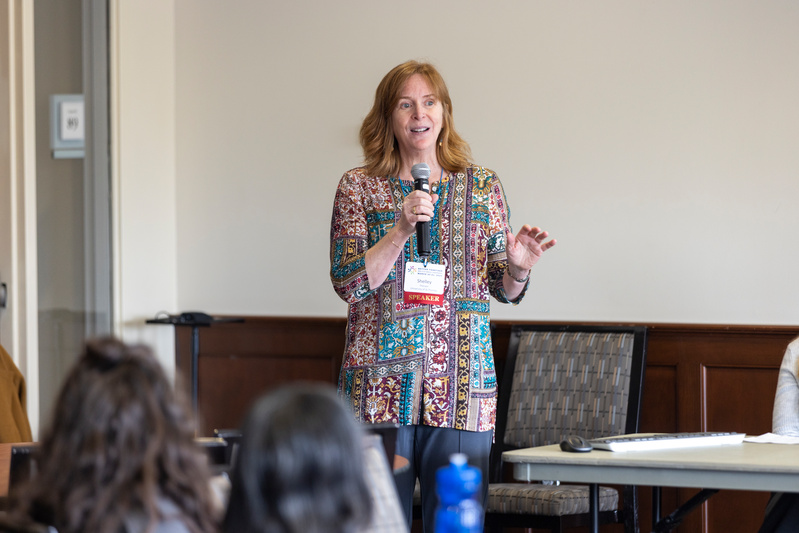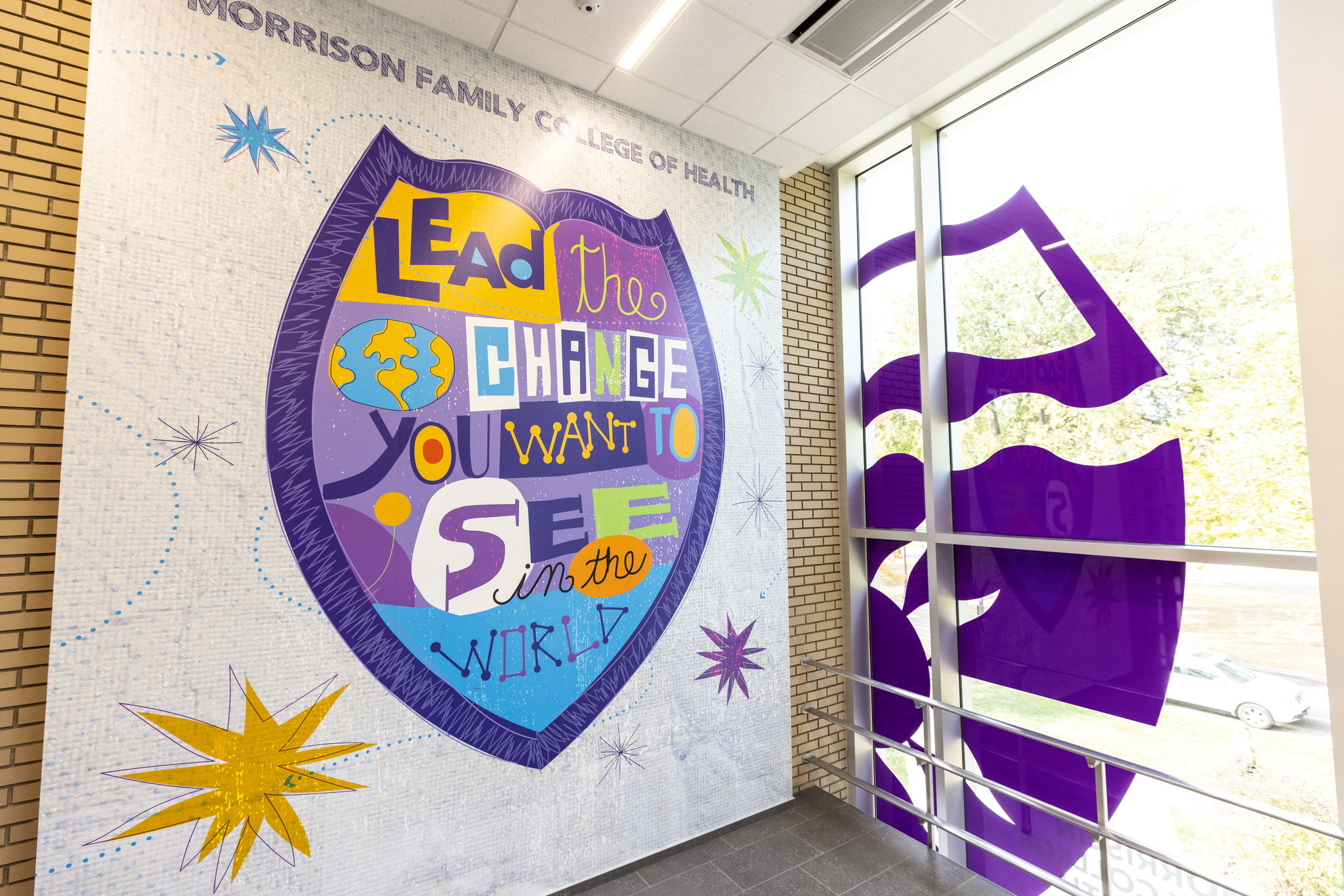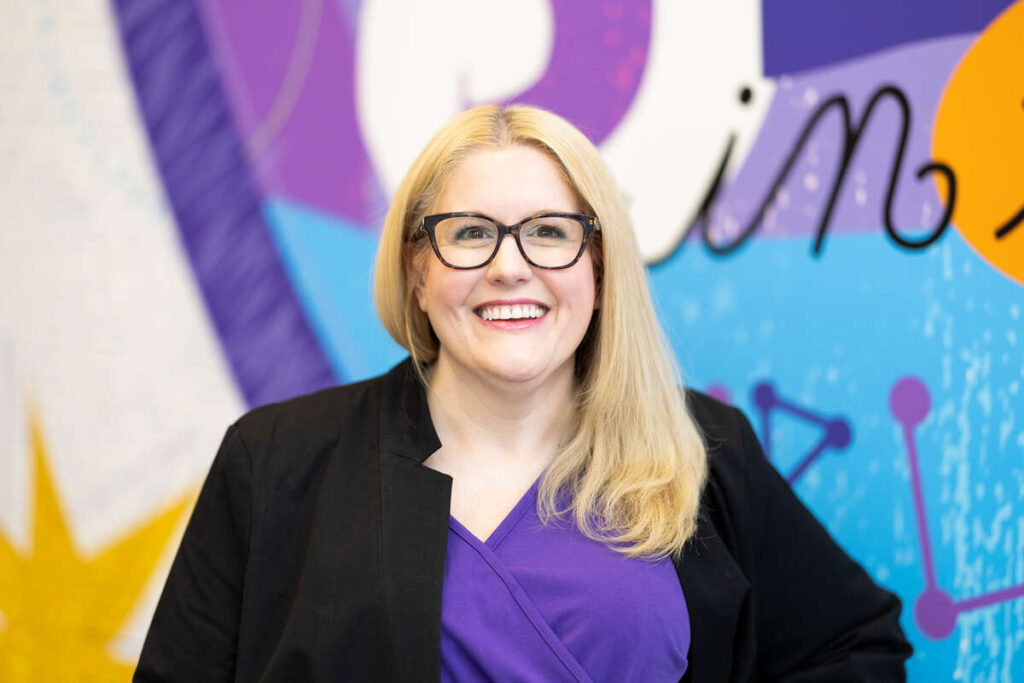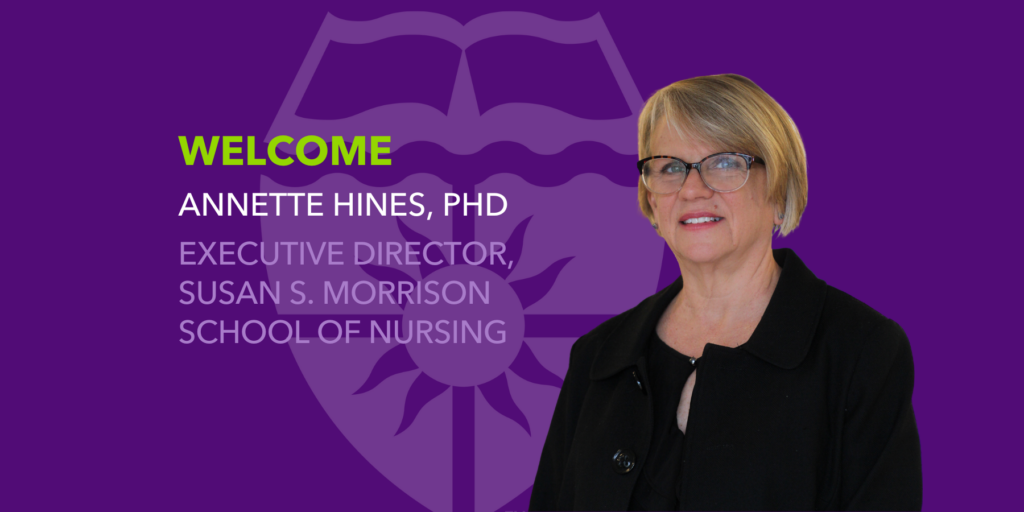The School of Social Work at the Morrison Family College of Health just received a $622,000 grant from the Minnesota Department of Education to help attract and prepare students for a career in K-12 school social work.
Facing a shortage of support services staff in schools across Minnesota and the nation, the funds will allow the University of St. Thomas to develop a more robust pipeline of students pursuing student support personnel careers.
First, new coursework and extensive scholarship aid will be made available to Masters of Social Work students interested in becoming licensed school social workers. Faculty are developing a new elective course that focuses on school social work while a series of $5,000 and $8,000 scholarships will be awarded to students who choose to complete their practicum requirements at school field sites.
“The immediate impact of these funds will help expose our students to a possible career in school social work,” said Shelley Theisen, who is the director of field education for the School of Social Work. “It’s hard not to fall in love with the work once you’re there. This is a fantastic way to get students into the field, allow them to practice their craft under the supervision of a school social worker , and then ultimately have them choose to stay in the schools.”

A second pathway will feature the School of Social Work collaborating with four Twin Cities school districts to enroll master’s candidates from their existing workforce. A variety of paraprofessionals, cultural liaisons and classroom teachers will each receive $30,000 in aid to pursue a Masters in Social Work at St. Thomas.
In addition to increasing the workforce, funding will also be leveraged to help increase the number of providers who identify as people of color and Indigenous. According to a survey by the Minnesota Department of Health, 90% of the state’s social workers are white.
“As our school population continues to become more diverse, we want our social workers to be more reflective of our student bodies,” Theisen said. “To do that, we’re excited to work with area districts in creating an accessible, affordable pathway to a master’s degree for individuals from underrepresented communities.”
The first district candidates will enter the MSW program in fall 2024, while current students will be eligible for practicum scholarships later this year.







